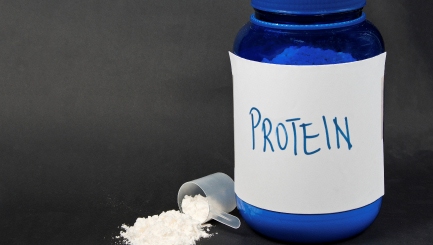Is Soy Protein A Real Alternative To Whey Supplements?
 In the arena of protein supplements, two contenders have emerged. In the blue corner, the challenger: soy protein, with a debatable cardo-protective effect, a worrisome phytoestrogen content and lack of all the essential amino acids. In the red corner, defending its title with all the essential amino acids, immune enhancing powers, and offering greater cancer protection than soy – whey protein. Is it just me, or does that sound like an unfair fight?
In the arena of protein supplements, two contenders have emerged. In the blue corner, the challenger: soy protein, with a debatable cardo-protective effect, a worrisome phytoestrogen content and lack of all the essential amino acids. In the red corner, defending its title with all the essential amino acids, immune enhancing powers, and offering greater cancer protection than soy – whey protein. Is it just me, or does that sound like an unfair fight?
The truth is whey and soy are top of the polls for protein sources because the former has the backing of supporting research and scientific fact, whereas the latter has clever exaggerations of flimsy studies and misleading propaganda behind it. For a protein to be complete, it must contain all the nine essential amino acids that your body can’t synthesise from other sources and must instead directly consume. As soy lacks the amino acid methionine, it is indisputable that soy is not a complete protein, whereas whey protein is complete in its natural form, and therefore has a higher biological value.
The FDA recently approved soy-containing products to be listed as able to reduce the risk of heart disease, but this was a potentially premature and dangerous step, as there was no solid scientific research to back such cavalier governmental support. In reality, soy has just as much evidence proving it enhances heart wellness as whey does, though the government, for some reason, is yet to give whey protein the same seal of approval.
Further, soy lobbyists sing the praises of the genistein and other phytoestrogens soy contains that are hormonally akin to oestrogens. However, according to a study in the Journal of the American Medical Association, which looked at oestrogen therapy and the prevention of heart disease, oestrogen treatment did not reduce the rate of heart disease in post-menopausal women, but it rather increased the rate of blood clots and gallbladder disease.
Researchers concluded, ‘Based on the finding of no overall cardiovascular benefit and a pattern of early increase in risk of CHD (coronary heart disease) events, we do not recommend starting this treatment for the purpose of secondary prevention of CHD.’ So it seems as though, when picking your protein supplement, there are simply no two wheys about it.

Comments are closed.